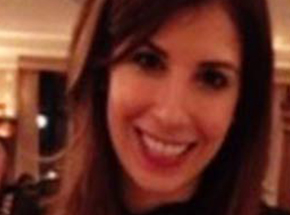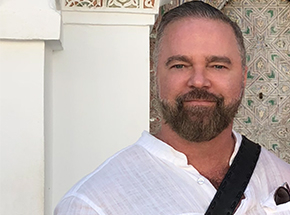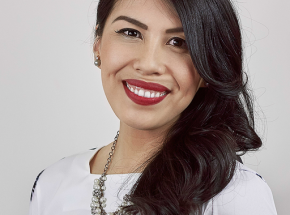- About BT╠ý╠├
- History of BT╠ý╠├
- Mission & Core Values
- Vision and Leadership
- BT╠ý╠├ Recognition
- Alumni Success
- Campus Development
- Arts at BT╠ý╠├
- Policies & Guidelines
- Academics
- Undergraduate
- Graduate Programs
- MA in Diplomacy and International Law
- MA in Global Communications
- MSc in Human Rights and Data Science
- MA in International Affairs
- MA in International Affairs, Conflict Resolution, and Civil Society Development
- MSc in International Management
- MSc in Strategic Brand Management
- Find Your Thesis Advisor
- Previous Programs
- Cultural Program
- Faculty
- Summer School
- Research Centers
- The Center for Critical Democracy Studies
- The Center for Writers and Translators
- The George and Irina Schaeffer Center for the Study of Genocide, Human Rights and Conflict Prevention
- The Joy and Edward Frieman Environmental Science Center
- The Center for Media, Communication & Global Change
- Departments
- Academic Resources
- Academic Affairs
- Academic Calendar
- Academic Resource Center
- Library
- Registrar's Office
- Teaching and Learning Center
- Employer Network
- Accessibility & Accommodation Services
- Quai D'Orsay Learning Commons
- Paris as Classroom
- ACE Center
- Admissions
- Student Life
- Campus
- Get Involved
- Paris
- Support Services
- Student Development Help Desk
- Student Accounting Services
- Student Immigration Services
- Student Grievance Procedure
- Accessibility at BT╠ý╠├
- Diversity and Inclusion
- Health & Well-being
- Digital Student Handbook
- News
- Events
- BT╠ý╠├ Giving
- Housing Offer for 2024-2025
- Housing | Spring 2024
- IRIS Project
- IT Services
- Alumni
- About BT╠ý╠├
- History of BT╠ý╠├
- Mission & Core Values
- Vision and Leadership
- BT╠ý╠├ Recognition
- Alumni Success
- Campus Development
- Arts at BT╠ý╠├
- Policies & Guidelines
- Academics
- Undergraduate
- Graduate Programs
- MA in Diplomacy and International Law
- MA in Global Communications
- MSc in Human Rights and Data Science
- MA in International Affairs
- MA in International Affairs, Conflict Resolution, and Civil Society Development
- MSc in International Management
- MSc in Strategic Brand Management
- Find Your Thesis Advisor
- Previous Programs
- Cultural Program
- Faculty
- Summer School
- Research Centers
- The Center for Critical Democracy Studies
- The Center for Writers and Translators
- The George and Irina Schaeffer Center for the Study of Genocide, Human Rights and Conflict Prevention
- The Joy and Edward Frieman Environmental Science Center
- The Center for Media, Communication & Global Change
- Departments
- Academic Resources
- Academic Affairs
- Academic Calendar
- Academic Resource Center
- Library
- Registrar's Office
- Teaching and Learning Center
- Employer Network
- Accessibility & Accommodation Services
- Quai D'Orsay Learning Commons
- Paris as Classroom
- ACE Center
- Admissions
- Student Life
- Campus
- Get Involved
- Paris
- Support Services
- Health & Well-being
- Digital Student Handbook
- News
- Events
- BT╠ý╠├ Giving
- Housing Offer for 2024-2025
- Housing | Spring 2024
- IRIS Project
- IT Services
- Alumni
Related Links
Alumna
Ari Price G'20
"I love the interdisciplinary framework"
Related Graduate Programs :
I was born in╠řthe US in╠řWashington State╠řand╠řmostly╠řgrew up on Lopez Island, Washington. When I was in high school,╠řI spent a month in Phuket, Thailand and╠řa few weeks in Quebec, but╠řbefore BT╠ý╠├╠řI had╠řnever really lived and worked outside of the US, aside from a few short internships.╠řAfter╠řacquiring╠řmy first╠řmasterÔÇÖs degree in social work, I spent╠řsome time in France in a professional capacity,╠řmoving to Paris╠řfor an internship╠řat╠řH├┤pital╠řUniversitaire╠řPiti├ę-Salp├¬tri├Ęre,╠řwhich╠řincludes╠řthe first health and social service unit for the deaf╠řto be╠řfounded in France.╠řI╠řalso worked╠řwith the first school for the deaf in the world,╠řlÔÇÖInstitut╠řnational de╠řjeunes╠řsourds╠řde Paris. After╠řimproving both my╠řFrench and╠řmy╠řFrench Sign Language╠ř(LSF), I╠řstayed on for╠řa third internship with a school of social work.╠ř
I╠řam╠řpassionate about learning languages (notably sign languages) and wanted to work in macro level╠řor╠řinternational social work. When I found╠řthe╠řDevelopment Communications Track within BT╠ý╠├ÔÇÖs MA in Global Communications,╠řI thought╠řit╠řwould set me╠řup for╠řbeing involved with organizations that promote social justice╠řand╠řequality and foster a better,╠řmore inclusive global future. The research I conducted for my social work degree focused on the experiences of deaf people in the Peace Corps,╠řof╠řthose╠řin Japan versus╠řthose in╠řthe US, and of╠řthose╠řin France. I wanted╠řto expand my knowledge of╠řdeaf╠řaccess to education, language and employment╠řaround the world,╠řand advocate for more programs, better policies and improved social services╠řworldwide.╠řI aim to╠řeventually get a╠řsociology╠řPhD that focuses on deaf inclusion.╠řOutside of BT╠ý╠├,╠řI enjoy going to marches and assemblies for social justice issues, lectures in local universities╠řand╠řsigning cafe events.╠ř╠ř
When I started at BT╠ý╠├, I was really impressed by╠řjust how many cultural excursions are╠řon offer. The sheer number of international trips and the diversity of the student body is incredible. I knew right away I wanted to go to India╠řto participate in the sustainable development practicum. The more I talk to others about their experiences the more grateful I am to be part of the BT╠ý╠├ community. In the Development Communications course we╠řtook╠řa trip to UNESCO and╠řit was really exciting╠řto see what people are working on there.╠řAs I am╠řoriginally from a small island in the Pacific Northwest, it's beautiful to see how much diversity we have at BT╠ý╠├. I╠řbelieve that I╠řhave become more ambitious since╠řstarting at the University╠řby observing╠řwhat other people are working on and╠řreframing╠řmy idea of what is truly╠řattainable.
Being at BT╠ý╠├ has widened my scope of possible futures. As a person interested in sign languages and disability rights advocacy, there are not a lot of specific degrees or career titles that will enable me to work with these skill sets.
I╠řfeel╠řlucky to have also had╠řprevious experience with╠řthe interdisciplinary style of education found at BT╠ý╠├ in my undergrad╠řexperience╠řat╠řthe University of Washington where I received a╠řBA╠řin Society, Ethics and Human Behavior with a minor in╠ředucation and╠řsociety. I love the interdisciplinary framework and enjoy how it╠řis╠řimplemented at BT╠ý╠├,╠řrecognizing╠řdiverse skill sets and knowledge backgrounds.╠řThe international communication networks I obtain here let me continue to learn from people with╠řa variety of╠řexperiences. I can participate in mutual empowerment and create better futures for people beyond╠řjust╠řone tiny, local community.╠ř
Being at BT╠ý╠├ has widened my scope of possible futures. As a person interested in sign languages and disability rights advocacy, there are not a lot of specific degrees or career titles that will enable╠řme╠řto work with these skill sets. When I arrived in Paris, I was offered opportunities to become an English teacher for deaf youth, a signing social assistant, an American╠řSign╠řLanguage (ASL)╠řteacher or an interpreter. These paths are specific and narrow and don't allow for a lot of diverse working environments and experiences.╠řOne of the many╠řburdens╠řplaced╠řon╠řmillennials and╠řGeneration Y is that our job market is constantly changing. Since moving to France,╠řI have talked to a lot of people who want to learn ASL, because╠řjust╠řlike English╠řas a speaking language╠řit is quickly becoming the most used╠řsign language in media, entertainment and the professional world. The╠řworldÔÇÖs╠řonly╠řdeaf╠řuniversity where classes are exclusively taught in sign language is in the US╠řand uses╠řASL. The US╠řis still not perfect in terms of deaf inclusion, but it is a step ahead of the rest of the world.╠ř
Being in Paris has enhanced╠řmy╠řexperience particularly because of its rich history and culture, incomparable to cities in the╠řUS.╠řIt╠řhas╠řalso╠řgiven me the opportunity to improve my French (an important global language) and LSF╠ř(an╠řimportant root sign language for many other╠řsign languages,╠řincluding ASL). I am╠řecstatic╠řto be able to╠řimprove my previous knowledge and abilities in order to╠řbetter communicate with people from diverse backgrounds who do not know English, but do know French or LSF.╠ř
╠ř
Related
-

Alexandra Swies G'14
Alumna
Read MoreAlexandra Swies G'14
Alumna
Fashion has always been a passion of mine, but BT╠ý╠├ has the perfect program to turn my passion into a career.
-

Richard Klein G'21
Alumnus
Read MoreRichard Klein G'21
Alumnus
Yes, the classes are challenging and interesting, but when you head outside you also get the immersive experience of Parisian living
-

Ruby Veridiano G'15
Alumna
Read MoreRuby Veridiano G'15
Alumna
I was able to ask my course instructors for specific advice, and I found that everyone was thrilled to help me as much as they could.
